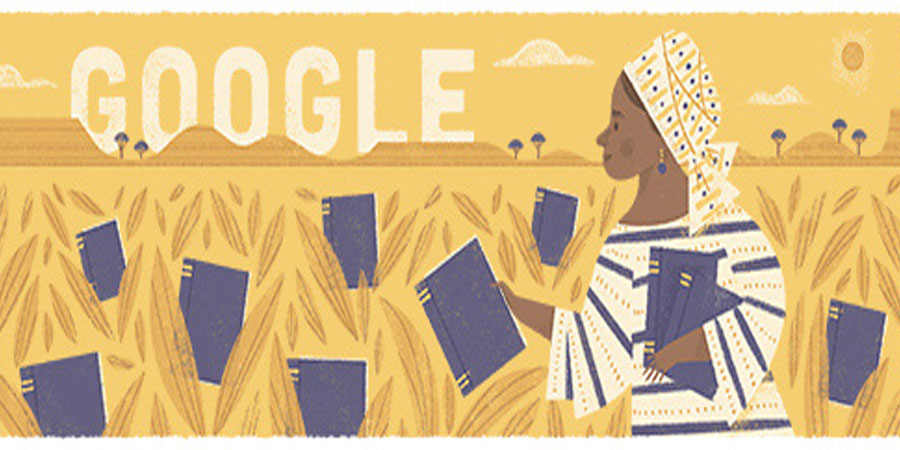
On her 86th posthumous birthday, late Nigerian novelist Flora Nwanzuruahu Nwapa is being celebrated by tech giant Google with a doodle.
Doodles are changes made to the Google logo to celebrate holidays, anniversaries, and the lives of famous artists, pioneers, and scientists.
Nwapa’s Efuru, published in 1966 was the first book published in English by an African woman, coming just 8 years after Chinua Achebe’s groundbreaking Things Fall Apart. She was also first female commissioner of the then East Central State.
But in spite of her landmark achievements in African literature as a frontrunner for female writers and the critical engagements in her books, she is less regarded compared to her male contemporaries such as Achebe, Wole Soyinka and John Pepper Clark.
Though she did not label herself a feminist, but some of her works tell stories of the Igbo traditional society from the perspectives of the woman.
“Flora Nwapa not only gives women voice in the work, she equally makes a persuasive case for women as eminently capable of contributing to the development of their societies like their male counterparts,” Ademola Adesola a doctoral student at the Department of English Studies, Obafemi Awolowo University wrote in an article published by the Guardian in December 2016.
The impact of Nwapa’s achievements is not lost on her family either. Last year, the family through Flora Nwapa Foundation celebrated the 50th anniversary of the publication of her magnus opus Efuru. The foundation, Nwapa’s son, Uzoma Nwakuche said, would be dedicated to further popularising her exemplary work in literature and women advocacy.
“Flora Nwapa Foundation will promote her legacy, promote African women literature, encourage young, aspiring female writers and promote the essence of Flora Nwapa’s work – the dignity and economic independence of women whose roles in traditional society are, sometimes, threatened or unappreciated,” Nwakuche said.
Flora Nwapa was born on January 13, 1931, in Oguta, Oguta Local Government Area of Imo State, Nigeria. She attended Oguta CMS Central School, Archdeacon Crowder Memorial Girls School, Elelenwo, Rivers State; CMS Girls Grammar School, Lagos, and Queens College, Yaba, Lagos in 1951-52. She then proceeded to the University College Ibadan ( now University of Ibadan) in 1953, where she graduated with Bachelors Degree in Art (BA) in 1957. The following year, she went to the University of Edinburgh, Scotland and finished with a Diploma in education.
Upon her return to Nigeria in 1959, her initial work experience started as an educational officer in Calabar, Cross River State and later went to Queens School, Enugu, where she taught English and Geography. Between 1962 and 1964, she was the assistant registrar (Public Relations) at the University of Lagos.
In 1965, she went into a professional career in writing, which projected her and Igbo women into the international scene, when her first novel, Efuru, was published in 1966.It was followed by the novels Idu (1967), Never Again (1975), One is Enough (1981) and Women Are Different (1986).
When the Nigerian Civil War over Biafra broke out, Flora and her family fled Lagos for East Central State, and from 1970-1971, she was appointed the first female Commissioner of Health and Social Welfare for the East Central State.
Apart from novels, Nwapa also wrote poems, short stories and children books.



